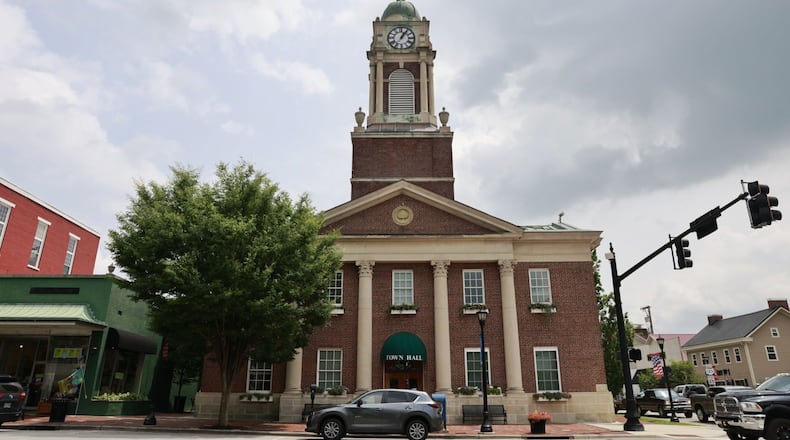While some members of the public said they wanted council to focus on city needs and issues such as public safety and infrastructure, council members said protection of unborn children also is part of their duties to protect the city.
The resolution defines the term “unborn person” or ‘unborn child” to mean the unborn offspring of a human being from fertilization until live birth. It also declares that the life of a human person begins at fertilization and human persons at every stage of development before birth have moral and legally protectable interests in life, health and well-being; that all human beings, including unborn children are included under the 14th Amendment’s protection; that permissive abortion laws deprive an unborn human person of their 14th Amendment protection; and abortion is harmful to community values, history and sense of justice.
It also calls council to provide equal protection of unborn children; and calls on Congress and Supreme Court to act.
Council was going to rescind its Sanctuary City for the Unborn ordinance, but has opted to table that decision until the Issue 1 challenges are decided by the state court system. Issue 1, a citizen-spurred constitutional amendment that, starting Dec. 7, will protect abortion access in Ohio up to the point of fetal viability, likely to be around 24 weeks, with protections thereafter for the life and health of the mother.
Of the 14 precincts in the city of Lebanon, Issue 1 was rejected in eight precincts and approved in six precincts, according to official results announced this week by the Warren County Board of Elections. Countywide, Issue 1 failed by a vote of 47,963 or 52.46% against to 43,463 or 47.54% for, according official results announced by the elections board. Warren County had a voter turnout of 53% or about 92,072 people voting of the county’s 171,914 registered voters.
Lebanon was the first city in Ohio to become a Sanctuary City for the Unborn in May 2021. The ordinance that was adopted divided the city. There are no clinics or providers that perform induced abortions in Lebanon or in Warren County. City officials at the time also said they wanted to prevent the possibility of an abortion clinic operating in Lebanon.
The ordinance, which was adopted before the U.S. Supreme Court struck down Roe v. Wade, initially included language stating it is the city’s position that human life begins at conception and that abortion is a murderous act of violence. That position remains in the resolution adopted.
The Sanctuary City for the Unborn ordinance made it a misdemeanor to provide or aid an abortion within city limits, which includes providing money, transportation or instructions for an abortion.
In May 2022, a day after Lebanon marked the first year of its controversial ordinance that banned abortions, city officials agreed to a stipulation not to enforce a section of the ordinance criminalizing those who assist people in accessing abortion care.
In September 2022, council voted to repeal and replace that ordinance with one that is somewhat less restrictive and was in compliance with the ruling of the U.S. Supreme Court in the Dobbs v. Jackson Women’s Health Organization decision that overturned Roe v. Wade.
“We were very outspoken on being pro-life,” Messer said at the meeting. “It’s important to talk about the 14th Amendment.”
Messer said the council will continue to fight for anti-abortion issues and that they were not going away. Messer, Vice Mayor Scott Norris and Councilwoman Kristen Eggers spoke about the sorrow of experiencing miscarriages in their families.
Councilman Matt Sellers said he believes life begins at the moment of conception and their first job as council members is protect life, adding they are “unapologetic for being pro-life.”
About the Author

